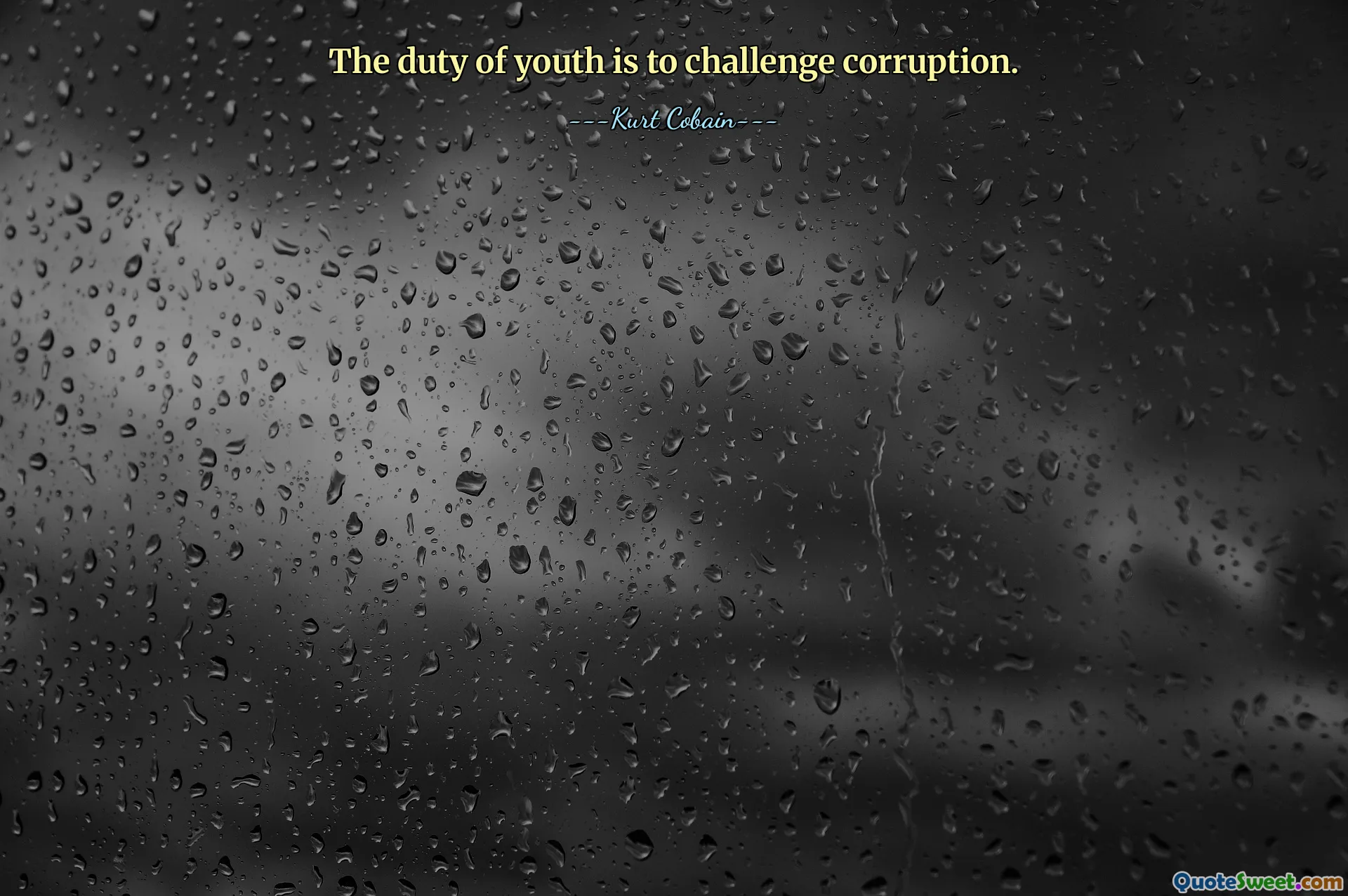
The duty of youth is to challenge corruption.
Throughout history, youth have universally been agents of change, embodying energy, idealism, and a desire for justice. The phrase emphasizes that it's not merely a personal responsibility but a moral obligation for young individuals to stand against corruption in all its forms. Corruption erodes trust in institutions, perpetuates inequality, and hampers societal progress. When the youth challenge corruption, they confront not just individual wrongdoers but systemic issues that sustain unethical behaviors across generations. This activism can spark reforms, foster transparency, and rebuild faith in governance and societal structures.
Youth challenging corruption also symbolize hope and renewal. As societal catalysts, young people often question outdated norms and push for equitable solutions. Their fresh perspectives can identify loopholes and failures that older generations may overlook or be unwilling to address. Moreover, challenging corruption often requires courage, perseverance, and moral clarity—qualities that empower youth and transform them into formidable agents of positive change.
However, challenging entrenched corruption is not easy. It involves risks of retaliation, social ostracism, and even legal repercussions. Despite these challenges, history demonstrates that youth-led movements have successfully catalyzed significant reforms, from anti-apartheid struggles to civil rights movements, environmental activism, and anti-corruption campaigns. Empowering and protecting young voices are crucial in this endeavor, fostering an environment where their moral stance can be voiced freely.
Encouraging young people to challenge corruption nurtures a culture of integrity and accountability. When youth take a stand, they inspire their peers and subsequent generations to uphold ethical principles. Ultimately, prioritizing integrity over complacency leads to healthier, more just societies where corruption does not flourish unchecked.











